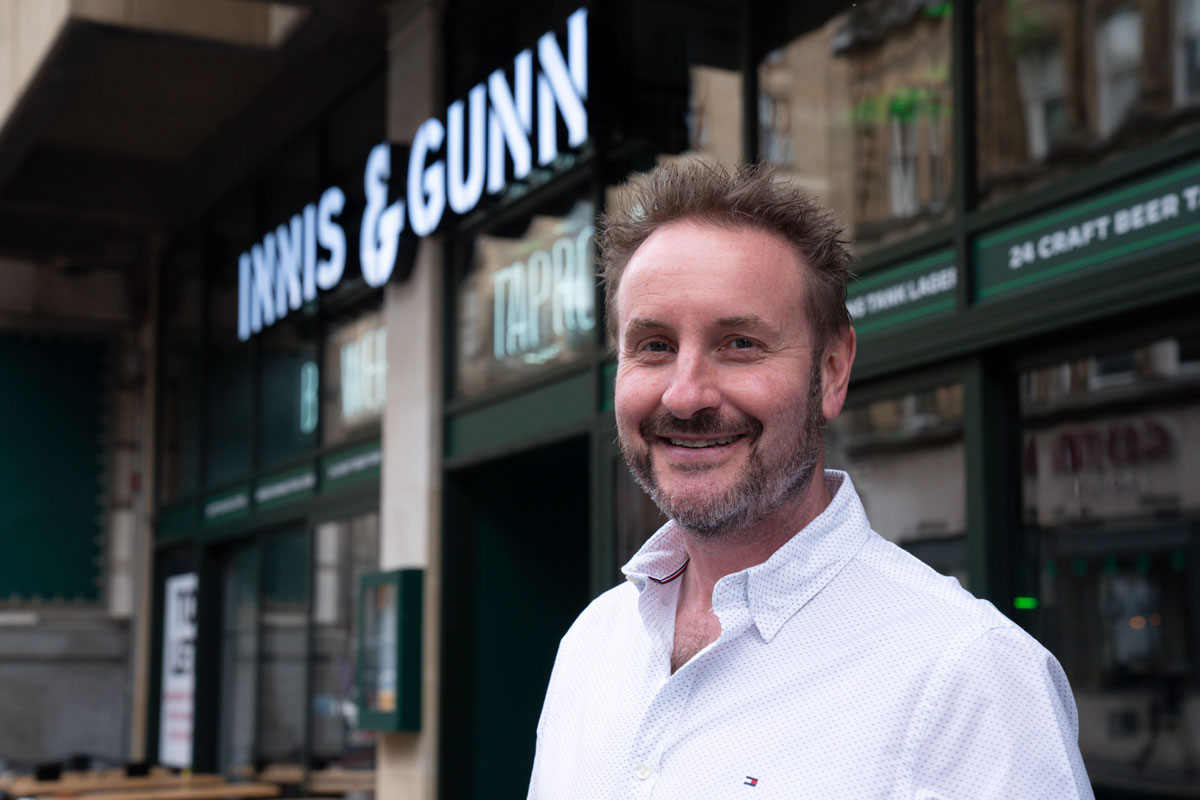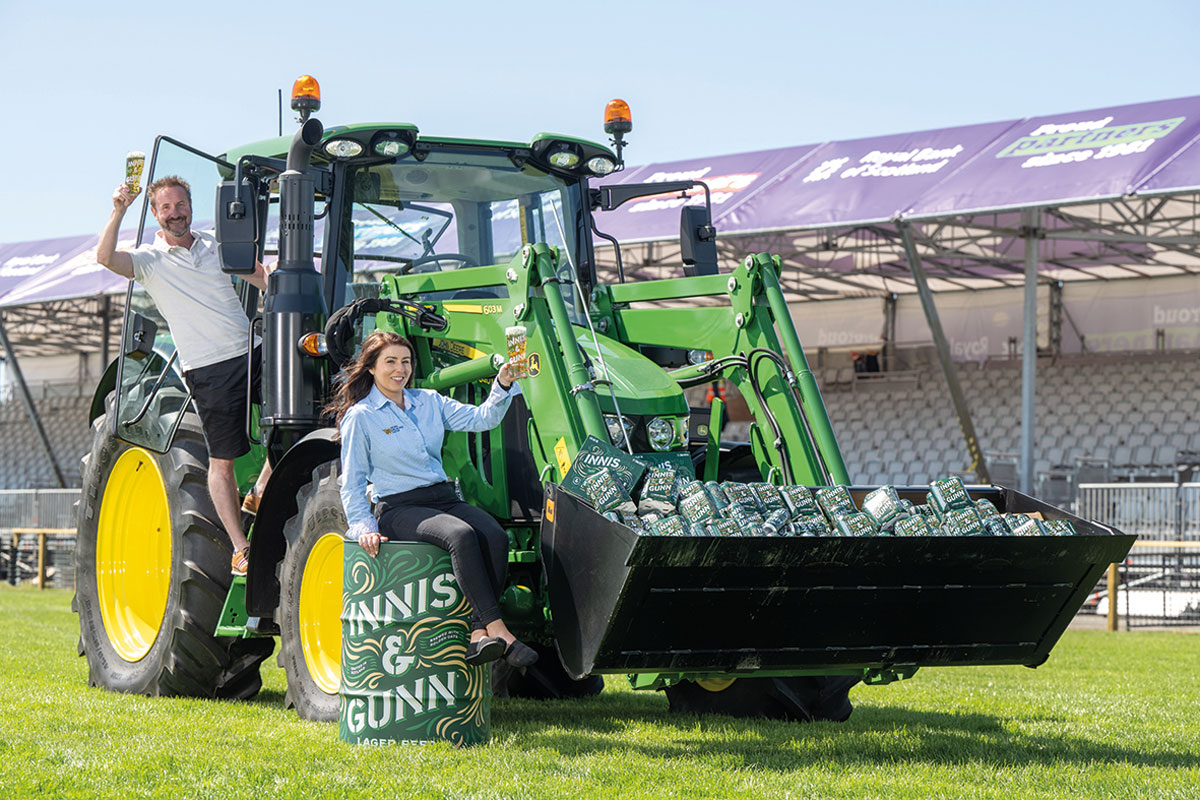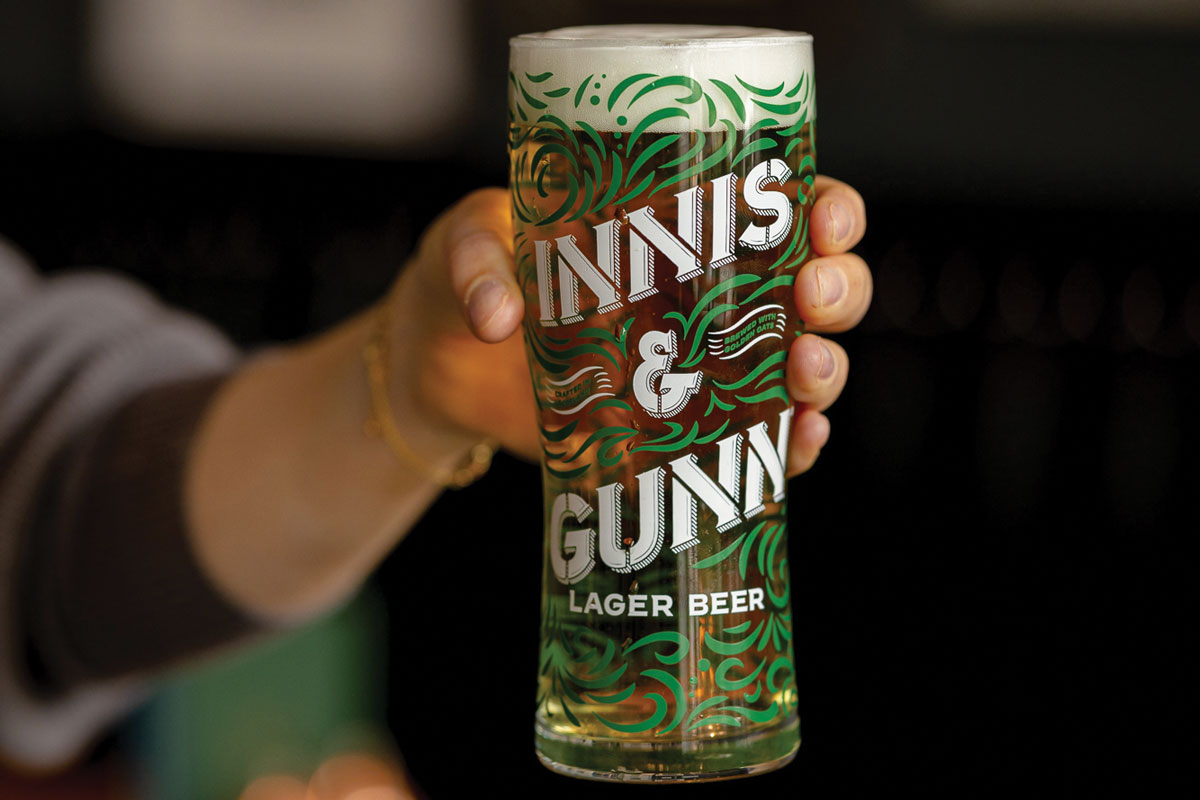 Scottish Brewer Innis & Gunn has posted financial results showing positive performance and profits growth up to December 2022.
Scottish Brewer Innis & Gunn has posted financial results showing positive performance and profits growth up to December 2022.
The company’s turnover grew by +7.8% to £22,735,000, compared to 2021’s £21,114,000, an improvement credited at least in part to the UK on-trade’s return to normal trading after a year of closures due to the Covid pandemic, which had previously had a significant impact on both on-trade and sales in the Brewery Taproom business.
A combination of other measures also contributed to volume growth, with sales price per hectolitre growth and Hospitality sales growth boosted by the pre-Christmas opening of a new flagship Brewery Taproom, located in the heart of Glasgow on West Nile Street.
In the same period, gross profit increased to £7,761,000, up by 5.2% on 2021’s £7,380,000, a lesser increase described as a ‘typical reflection’ of the cost pressures afflicting the supply chain.
Against this financial background, the brewer has maintained its position in the off trade as Scotland’s number one craft beer brand and in the Scottish on trade, Innis & Gunn is currently the fastest growing premium lager in the Top 5, just behind Stella and Peroni.
The company’s strategic shift towards prioritising brand investment in the on-trade and supporting ‘high-impact’ consumer events – in particular through new partnerships with The Royal Edinburgh Military Tattoo and the Royal Highland Show – has delivered a strong return on investment both in terms of margin and brand exposure. For the first time in seven decades of the Tattoo, Innis & Gunn successfully operated bars at Edinburgh Castle throughout this event.

New product launches and innovative limited editions also helped recruit new consumers and illustrated the brewer’s continued investment in innovation. These included Islay Whisky Cask, in partnership with Laphroaig; Cherry Kriek Sour Beer, and the sixth edition in the iconic Vanishing Point annual release series.
On the charitable front, the Group awarded £30,000 of donations to its partner Meals & More, a charity focused on ending holiday hunger and social isolation affecting schoolchildren across the UK during holiday periods.
Its first Carbon Footprint review was also undertaken, using data from the 2021 calendar year to create a baseline for Innis & Gunn to implement improvement projects going forward.
Commenting on the results, founder and master brewer Dougal Gunn Sharp, said: “We’ve delivered positive results despite the uncharted post-Covid territory and challenging external factors beyond our control.
“Innis and Gunn, like any other business operating in the beer industry, faces potential risks with economic downturns and instability, fluctuating energy and commodity prices but we remain optimistic and continually review and maintain risk management strategies.
“This has been without doubt the toughest year of trading we’ve faced,” he said. “However, we have taken a robust approach to the business with a firm steer on, and forensic review of, our product lines to ensure that they not only enhance the brand but importantly provide a strong margin return to protect the company’s bottom line. This will be a continued focus for 2023.

“The explosive inflationary costs impacting on all businesses especially the rise in energy costs has been a worrying factor, but we have worked closely with our key customers and successfully increased pricing, mitigating some of the increased costs we are receiving throughout the supply chain and from the energy companies.
“We have continued to invest in our brand and Inveralmond Brewery, a renewed focus for 2023. The site is running close to maximum capacity but without the reliance on third parties, we can be more agile with small batch brews thus reducing the working capital tied up in stock. This also provides a clear pipeline for Innis & Gunn to continue to invest in new product development, sustainable initiatives and capabilities.”
He concluded: “As we move into our 20th year in business in 2023, we remain extremely positive with a strong brand and encouraging performance. We are focused on maintaining the strategies which have underpinned our successes to date, and as we continue to navigate the current economic challenges our attention on margins and costs must be ever more acute.”




















